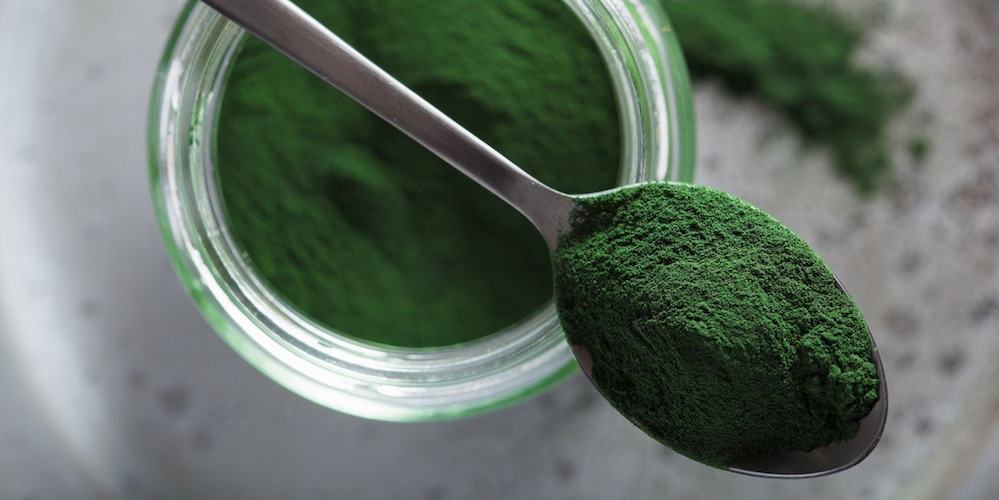What are the most effective substances for immunity?
Echinacea
Echinacea has long been used for its healing properties on wounds. Nowadays, it is recommended in Europe and North America for its ability to boost the immune defenses.
Three different species are used (E. angustifolia, E. Pallida, E. purpurea), which explains their pluralized common name.
These plants work by activating various immune cells. This action is due to the synergy of the two main active families contained in the root and aerial parts: alkylamides and polysaccharides.
Several studies, including this one conducted in 2023 on dairy cows, indicate that the administration of Echinacea purpurea is associated with a reduction of inflammation and a stimulation of the immune system.
Ginseng
Ginseng is an Asian plant whose root has been consumed for over 4,000 years.
Among the most renowned is Panax ginseng, whose root is known for its form resembling human morphology.
It belongs to adaptogenic plants, meaning it helps the body adapt to stress and imbalances, and enhances resistance to adversities.
According to this 2019 article, ginseng plays a substantial role in enhancing immunity against cancer, bacterial and viral infections, and autoimmune diseases.
Ginseng owes these properties to the ginsenosides and polysaccharides it contains.
Royal Jelly
Royal jelly is a gelatinous, fluid substance with a warm flavor, made from the secretions of nurse bees. The larvae and the queen use it as their exclusive food.
It is composed of 14% proteins, including royalisin, notable for its antiviral and antibacterial effects.
It also contains many vitamins, including vitamins B5, B12, and C, which help boost immunity and reduce physical and mental fatigue.
This 2021 article compiling results from various studies on its biological functions, demonstrated anticancer, antibacterial, intestinal immunity-boosting, and immunoregulatory effects.
I find that its combination with lactic ferments, vitamin D3, or zinc could be very interesting for preventing and fighting winter ailments.
Vitamin D
Vitamin D or calciferol is a fat-soluble vitamin produced by the skin under the action of sunlight. Besides its essential role in bone mineralization and muscle contraction, it also plays an important role in immunity.
This vitamin helps to increase antimicrobial defenses and aids our body to be more tolerogenic, so as not to react without good reason, as demonstrated by this study.
A deficiency in this vitamin is associated with disrupted autoimmunity and greater susceptibility to infections.
Elderly people, people with medium to dark skin (since synthesis via sun exposure is less effective), strict vegetarians, and people with intestinal diseases are at greater risk of deficiency.
I add that low sunlight environments and a diet poor in vitamin D can also be lack factors.
Vitamin C
Vitamin C, also called ascorbic acid, is a water-soluble substance with many benefits for our body.
Among which are the antioxidant effect, collagen production stimulation, and also the strengthening of the immune system.
Our body cannot synthesize this substance, so we need external intake.
A 2013 analysis including several studies confirmed that vitamin C supplementation with doses of 200 mg or more per day is effective in reducing the severity and duration of a cold.
According to another study, acute respiratory infections (tuberculosis, pneumonia) reduce its plasma levels. Supplementation could restore normal levels and reduce the severity of respiratory symptoms.
Zinc
Zinc is a trace element that may affect several aspects of the immune system. It is crucial for the development and normal functioning of immune-mediating cells.
As demonstrated by this study, phagocytosis, intracellular destruction, and cytokine production are all affected by a zinc deficiency.
The ability of zinc to function as an antioxidant and stabilize membranes suggests that it plays a role in the prevention of free radical-induced damage during inflammatory processes.
Probiotics
By adhering to the intestinal mucosa, the flora bacteria, or intestinal microbiota, prevent pathogenic microorganisms from colonizing the intestine.
Probiotics are bacteria or yeasts that help balance the microbiota and strengthen the digestive system’s role, partly in immunity.
The main families of probiotics used are lactic bacteria such as lactobacilli, bifidobacteria, and streptococci but also the yeast saccharomyces.
Their greatest interest for immunity lies in the preventive and curative enhancement of the newborn’s and child’s immune system, especially in the case of infectious diarrhea.
They increase phagocytic activity and the number of IgA at the intestinal level as this study demonstrates.
Spirulina
Spirulina is a cyanobacterium, known for its very rich composition in phycocyanins. Thanks to the proteins and minerals it contains, you can use it for numerous benefits such as, the antioxidant effect, immunity and vitality booster, or detox.
In this study conducted on 40 people aged 50 and older, it was demonstrated that spirulina supplementation over 3 months increases the production of red and white blood cells in the body.
This helps not only in cases of anemia and fatigue states but also to boost the functioning of the immune system.
Spirulina owes its actions to the polysaccharides it contains.

In what form?
In capsules
Benefiting from very good preservation and a precisely easy dosage in active ingredients, the capsule is the most common form.
Ginseng or trace elements like zinc are usually packaged in capsules, as are probiotics.
In liquid solutions
Firstly, there are ampoules, the preferred galenic form for liquid solutions. They protect the active ingredients well from air and light, and have better stability (as they are presented in single doses).
If you opt for royal jelly, this is the most common form you will find it.
Plants are often consumed in hydroalcoholic extracts, such is the case with echinacea for instance. Also called mother tinctures, these preparations are obtained by macerating fresh plants in alcohol.
The goal is to extract a concentrate of the plant’s active principles. However, the presence of alcohol restricts its use.
In gummies
Gummies resemble gummy candies. They allow for good adherence to a treatment given their fun and appetizing appearance.
I recommend prioritizing this form for adolescents or to encourage the whole family to try it! But I also advise you to be mindful of the sugar content.
In powder
I recommend this form for voluminous actives, for example substances containing large proportions of proteins.
Among the active ingredients I recommended above, spirulina can easily be used in this form.
This would allow for better dosages, as well as a wider range of preparations. You can thus add it to your favorite salad or mix it into your morning smoothie.
What criteria should be considered?
1. The formulation
We distinguish products with a single active ingredient and those containing active complexes.
I recommend choosing highly concentrated unique actives if you have known deficiencies such as vitamin D. Or if you desire a specific action like the free radical scavenging action of vitamin C or the superfood effect that spirulina alone provides.
Otherwise, I invite you to favor the blend of several actives for an optimal effect.
For example, for probiotics and echinacea, prefer them combined with vitamins or trace elements to optimize their effects.
2. The bioavailability of actives
The greater the bioavailability of a substance, the better its effectiveness. This corresponds to the speed and extent of the systemic absorption of the active ingredient.
Due to its liposoluble nature, Vitamin D is better absorbed in an oily liquid form or microencapsulated than in capsule form. Just be sure to keep an eye on its storage to avoid oxidation of the actives.
Also favor the D3 form, as it is the best absorbed and most stable.
Vitamin C is a hydrophilic substance which means it is eliminated very quickly by the body. The liposomal form, consisting of encapsulating it in a lipid envelope, therefore provides better absorption and a longer-lasting effect.
For zinc, the bisglycinate form and the microencapsulated form are the most bioavailable. Also, prefer it combined with selenium or vitamin B12 for better effectiveness.
As for plant extracts, opt whenever possible for pure extracts of fresh plants. Additionally, organic cultivation will prevent potential toxic interferences such as certain pesticides.
3. The form
I advise you to check the supplement form in relation to your needs, your age, and your preferences.
For example, favor the syrup and gummy forms for children for their taste and playful aspect.
And prefer the powder and ampoule forms for the elderly for their high active content and ease of ingestion.
Adults can take all the forms already mentioned, it all depends on the dosage. Child dosages are always lower.
4. The dosage
A reduced number of doses could facilitate adherence and thus the continuation of the regimen.
For example, for royal jelly, taking one ampoule is on average equivalent to 6 capsules to reach a dose of 1000 mg per day.
In this case, the ampoule form will facilitate your daily intake of royal jelly.
5. The price
The price depends on the type of active ingredient, its cultivation method if it is a plant extract, and on whether it is used alone or in combination.
It thus varies between €5 and €12 for single actives and can go up to €30 when there is a blend of actives.
The dosages to respect
Echinacea: dry extracts between 200 and 1000 mg per day, and for mother tinctures, take 20 to 30 drops three times a day.
Ginseng: phytotherapy products containing ginseng are usually standardized to contain between 5 and 7% ginsenosides, with doses of 200 mg one to three times a day.
Royal Jelly: average minimum dose of 500 to 750 mg, going up to 2 g.
Vitamin C: 200 to 1000 mg per day.
Vitamin D: 15 to 50 ug per day (equivalent to 600 – 2000 IU).
Zinc: 15 mg per day away from meals.
Probiotics: I recommend a minimum of 10 billion bacteria per dietary supplement.
Spirulina: the recommended daily doses of spirulina vary, ranging from 1 to 6 g per day. Opt for a minimum phycocyanin content of 15%.
What are the usage precautions?
I advise against the use of echinacea in cases of autoimmune diseases, organ transplants, or for people with a deficient immune system (HIV).
For ginseng, its use is not recommended for people suffering from diabetes, high blood pressure, or heart diseases.
Given its liposoluble nature, I advise assessing your specific needs for vitamin D before starting a course based on potential nutritional deficiencies as there is a risk of overdose. Favor short courses of one to ten days without exceeding continuous treatment for eight weeks.
I would recommend prioritizing spirulina from organic cultures to eliminate the risk of accumulated heavy metals.
Consult your doctor for pregnant or breastfeeding women and children under 12 years old due to the lack of study data.
Dietary supplements should not be considered a miracle solution and should not be used excessively.
What can influence our immune system?
Factors affecting our immunity
During the cold season, our metabolism slows down, and the immune system follows by slowing the movement of its cells.
Bronchial cilia also become less effective. This provides more time and ease for pathogens to breach the barrier and settle in.
Moreover, as demonstrated by this study conducted on mice, in case of infection, a state of prolonged stress is associated with reduced effectiveness and lower resistance of the immune system.
Immunity is also directly correlated with sleep, starting from the early years of our life as confirmed by this recent INSERM article,
The immune system also evolves with age. Children and the elderly often have less developed immunity, making them more susceptible to infections.
A quality diet also helps to tackle pathogens and chronic inflammations more effectively as demonstrated by this research work published in 2019.
A deficiency in certain micronutrients could thus weaken the immune system.
Supplementation, a good idea to strengthen our immune system?
It is important to take measures to strengthen your immune system, especially during the cold season.
I advise you to start by prioritizing a balanced diet with good sources of protein, fiber, and vitamins, along with regular physical activity and sufficient rest time.
For foods, consider those with invigorating properties like ginger or those rich in vitamin C such as citrus fruits or broccoli. Foods with antiseptic and antibacterial properties are also welcome, such as honey or garlic.
Supplementation also plays a role, not only to address known deficiencies but also to provide a concentrated dose of active ingredients that help boost your immune defenses.
To summarize
To ensure you choose the right immune supplement, I advise you to check the following points:
- 1. The formulation: the type and number of active ingredients depend on individual deficiencies and needs
- 2. The bioavailability of active ingredients: the higher the bioavailability of a substance, the more effective it is
- 3. The form: the choice of form depends on age, for example
- 4. The dosage: the fewer doses required, the better the adherence to the treatment
- 5. The price: 5 to 12 € for the active ingredients alone and up to 30 € for mixes of active ingredients



